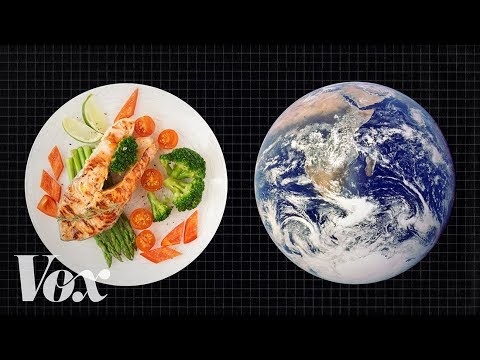MOST RECENT
POPULAR

The best of EcoWatch, right in your inbox. Sign up for our email newsletter!
Your Food Has a Climate Footprint: Here’s What You Can Do About It

By Bruno Vander Velde
Our diets are—to put it bluntly—a problem for the planet.
About a quarter of global greenhouse gas emissions can be traced to food in some way. So what you put on your plate actually matters a lot more than you think.
In the newest installment of the Climate Lab video series—produced by the University of California in partnership with Vox Media—Conservation International CEO M. Sanjayan illuminates the footprint of food.
As you may have guessed, the climate impact of meat gets plenty of attention—but it doesn’t mean we all have to go vegan.
The video debuts on Vox; watch above or at youtube.com/vox.
It might just change the way you eat.
EcoWatch Daily Newsletter
Related Articles from EcoWatch
Recent Stories from EcoWatch

 233k
233k  41k
41k  Subscribe
Subscribe 